
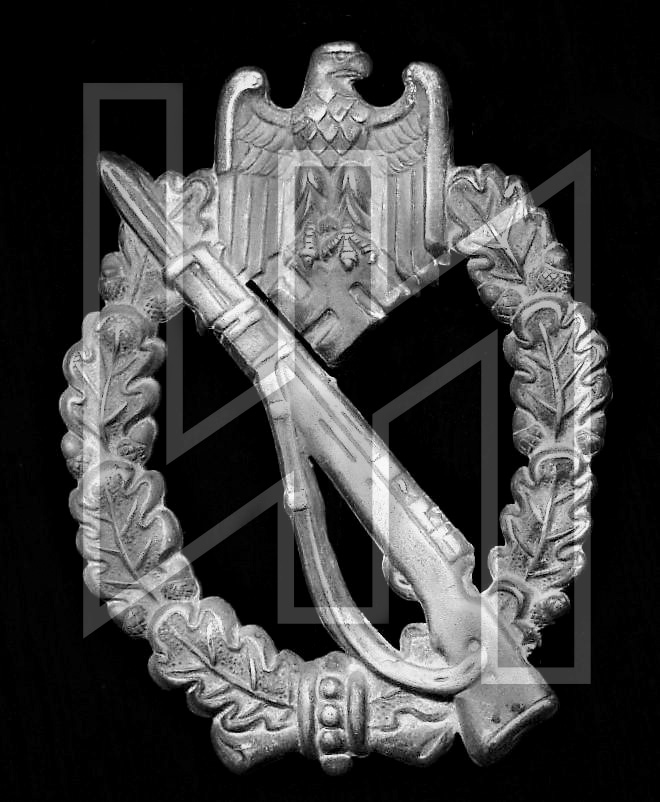
Interview with Alfons Stegmaier, winner of the German Cross in Gold and Platoon Commander of 2. SS-Panzer Division 'Das Reich', Stuttgart, 1983.
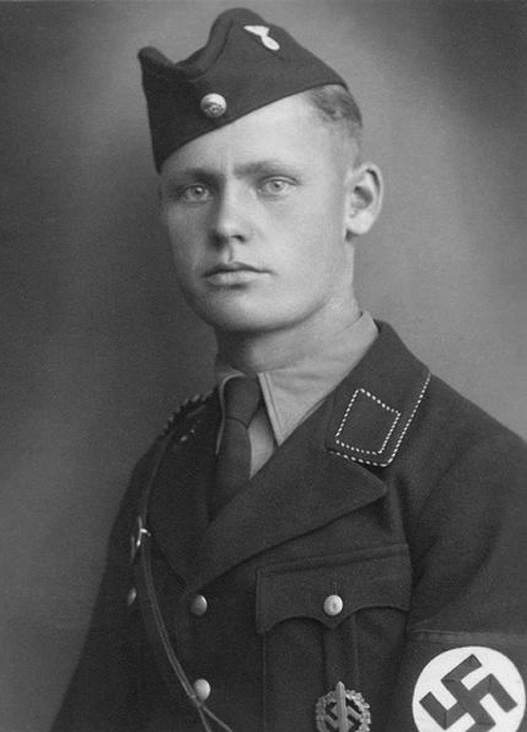



Interview with Alfons Stegmaier, winner of the German Cross in Gold and Platoon Commander of 2. SS-Panzer Division 'Das Reich', Stuttgart, 1983.


Alfons: Yes, it was easy to call yourself an SS man back then; today you must
be quiet about it. It all seems so long ago, but in my mind, I remember it like
yesterday. I chose the SS because it was known to have rough and tough
fighters in the ranks; the best of the SA went to the SS.
It was very hard to get in, only the best blood of the Reich could
serve early on, later in the war they took most anyone. I was in the early SS
and wore the black uniform, it had much prestige in those days. The SS was
for me a way to get into life as a soldier, which would offer great rewards
after my service time.
My comrades had varying reasons; some did so because of National
Socialism, some admired Hitler and Himmler, and others saw it as means to
move up. As I said it was not a bad thing to belong to the SS then, it had great
rewards.
The SS was seen as the party's army and we wanted to serve our nation in a very tough and elite branch. We
trained much like the army did, but ours was more for parades and guard
duties, some served as guards for the high leaders.
If one wanted to be the best of the best back then, you applied to and
successfully entered into the SS. I compare this to the old Kaiser's mounted
Life Guards [Regiment der Gardes du Corps], who wore black and guarded the Kaiser.
Once the war started our training was more military-like and it
involved tactics and equipment training. I was chosen to go to Jüterbog [north-eastern Germany, about 65 km (40 mi) southwest of Berlin] to train on mobile artillery guns.
You served in the war, what was it like for you?
Alfons: Boy, war is not something to be admired and enjoyed. It was dirty,
painful, and miserable. I was lucky to have such good comrades to help ease
the misery. We lived most times outdoors, even in winter. There was death
at every turn, and you had to be on watch at all times.
It scarred men who, to this day, have nightmares about it, it was not
a nice thing to see or live through. While it is good to remember the men who
fell and fought, war is not glamorous. I saw a comrade get cut in half by an
anti-tank shell; it was a useless waste of life.
When you look around and see a foot, head, or guts laying in front
of you, it is sickening and revolting. War is the greatest waste of life and
energy that exists today, yet men keep repeating it. I hope for your generation
to never see what we saw, to never know the loss of a comrade or family member.
You won the German Cross in Gold I am told, what is this award?
Alfons: It is a high award for bravery or leadership that was made available
to all ranks in the German military. If you won the Iron Cross First Class and
again achieved a high level of leadership or personal achievement, you could
be awarded this. I do not have mine here, but it is a big and bulky award, that
because of this, came in cloth. Many of us in the armored branch wore this
version. Early on we could see having many decorations meant always losing
them while entering and exiting a Panzer.
You would see scratches and dents on the awards for men in the
armor branch. You would have to enter and exit very quickly at times and
heads, hands, and everything else could get quite banged up.
Wearing the German Cross in Gold brought instant respect from
everyone since it was very few who wore this award. The Americans called it 'the
fried egg', for what I have no idea, it made no sense, but it stuck.
[Above: The cloth version of the German Cross in Gold. This is on field grey wool signifying it was used for the Wehrmacht. Click to enlarge.]
Can I ask what you did to be awarded the German Cross in Gold?
Alfons: Very well, I was in the 2. SS-Panzer Division Das Reich, specifically
in Panzerjäger regiment 2, 3rd Company. We had the assault gun III with the
long barrel [Sturmgeschütz III (StuG III)], which was effective against most all armor. My crew was very
good at picking off Russian armor; we had a low profile so we could hide
easily.
The gun sat very low, as it had no turret like a regular Panzer, so we
could move the gun only slightly. We had very good optics and radios, so we
could see and pinpoint the enemy quickly and effectively, most of the time.
We could see them before they saw us, which was a good thing.
My crew did very well and because of our kills and my leadership
I was put in for the award, which was approved in June 1944, just before the
invasion front. I will state my crew made that award possible; they received
the Iron Cross for their work. It was a high honor for a crew leader to wear
the award; it was just short of the Knight's Cross.
We were important in stopping many breakthroughs by the Russians
and repulsing their attacks. I still to this day hear the crack of the cannon
when firing and seeing the smoke rise from our victims. It was either them
or us, and we shot first.
Can I ask how you feel about the SS being called criminals?
Alfons: I cannot speak for all the men who served in the ranks of the Waffen-SS, but I will state I took part in no crimes and neither did my comrades. Now,
with that said, I find no joy in knowing we forced people to supply food and quarters. This was done in the east and west.
We had to enter a town and find a place to stay. Many times the
orders went out that the people would have to let us stay with them, if only in a barn or stalls [a common military practice known as 'billeting']. We would move our guns up under cover and rest for the
night. In the west we had much better lodging and our guns stayed in
barracks.
They say today that we shot down people for no reason, but that is
not true. We faced a bad war in the rear lines, and when caught, these
saboteurs were arrested and at times executed. While there was no joy in this,
it was war, and had to be done to stop further attacks. We did not go and
randomly pick people to shoot, they had to do something bad to face our
retaliation.
And so, for the camps, we had nothing to do with those, and I am
angered when we are compared to the camps. We were not guards who wore
the deaths head on their collars. We were merely soldiers who went to war
because our nation called us to arms. In the end they treated us like criminals
and not one of us deserved it.
We believed the western allies were going to join with us to fight
Stalin, but instead they arrested us and treated us like criminals. I never
understood that, we were soldiers who served our nation and did nothing
wrong.
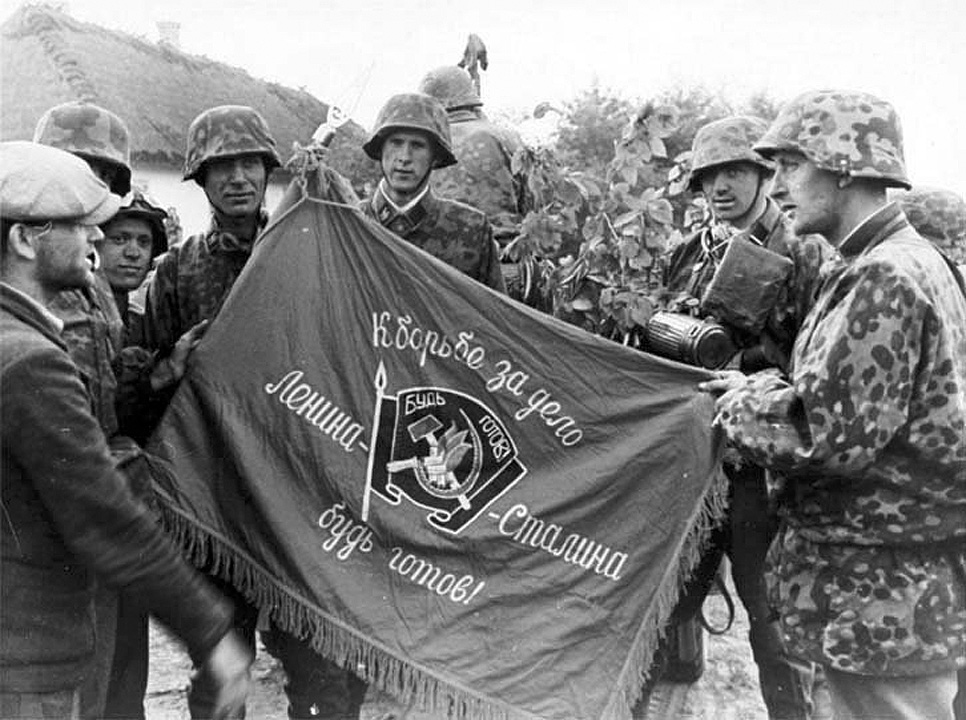
[Above: A civilian helps German soldiers of the 2nd SS Division 'Das Reich' hold up a captured Soviet flag. Ukraine, July 1941.]
What did you think of the Russian people, did you like them?
Alfons: I had nothing for them or against them, they were people like us. The
bugs and mosquitoes were the real enemy. They were very bad in places
during the summer months. The people were mostly glad to see us as they
had it bad under Stalin. Can you imagine they greeted us with flowers and
bread?
We would come into a railhead and all the children would rush the
trains to sell trinkets or shine boots. I was surprised to see restaurants open in
the large cities, they rebuilt like no war was going on. In Kiev they had many
outside markets, like in peacetime, where you could buy food or goods.
We had to stay with civilians in many instances, and we always
treated them well, offering food and cigarettes for their hospitality. Once I
remember we parked the gun and hid it, then went to eat. The farmer brought
us explosives he found after the Russian retreat. He asked if we could show
him how to use them to bring down some trees.
Our gunner went out and set them up, letting the farmer detonate
them. These were high grade explosives and they threw one of the big trees
on our gun from 40 metres away, crushing his barn. It took great effort to
remove the tree and fix the damage.
I know the people would bring in their sick and wounded to SS field
hospitals, I was in one where a man brought his sick child. Our doctors sat
her in the bed next to mine, she had worms and they flushed them out. I point
this out as we were not bad to the people, and we were not at war with them. We fought only to stop the spread of Bolshevism and protect Europe
from this danger. We had to fight England, which no one wanted to do.
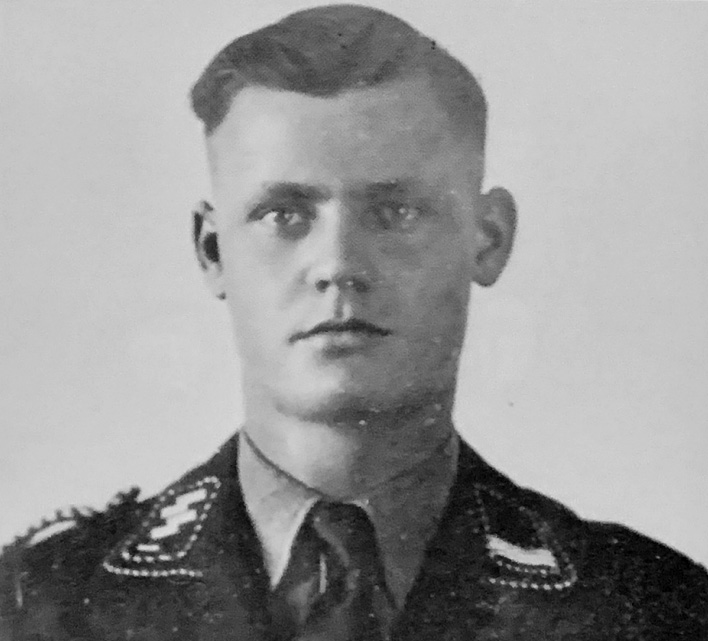
[Above: The young SS knight Alfons Stegmaier.]

[Above: The cuff title of heroes. The 'fire fighters' of the forces of light. Fighting the fires of evil wherever they burned.]
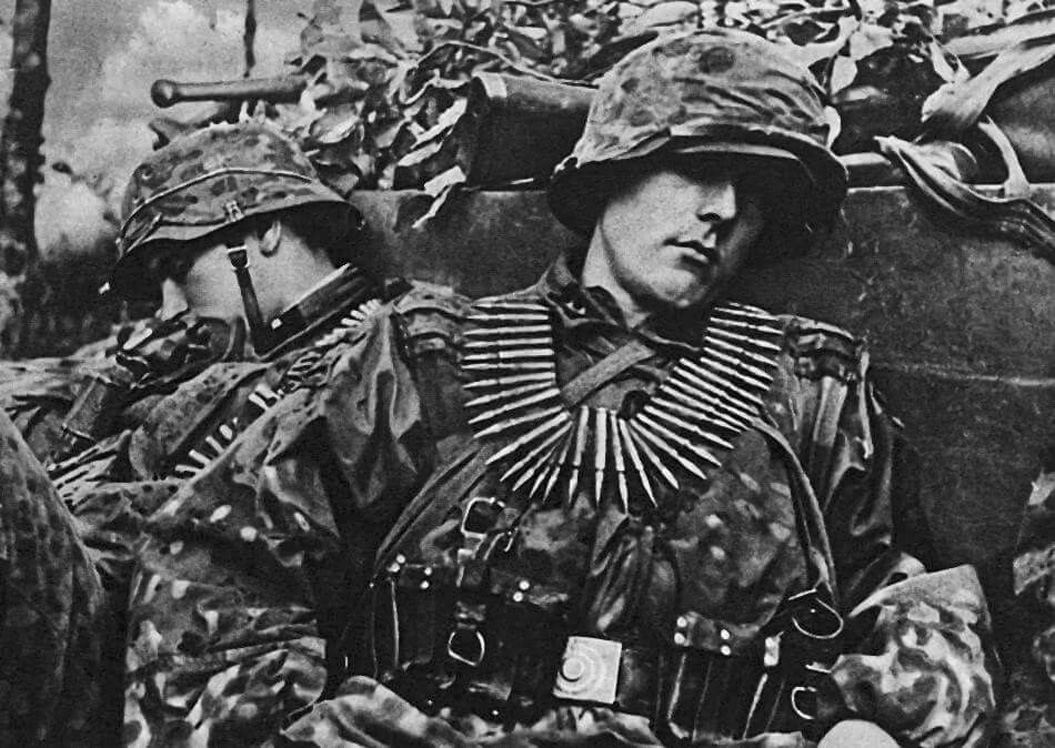
[Above: Tired warriors dreaming of a better world. They died trying to give it to us. It's our turn now, they pointed the way and led by fearless example. It's now or never.]